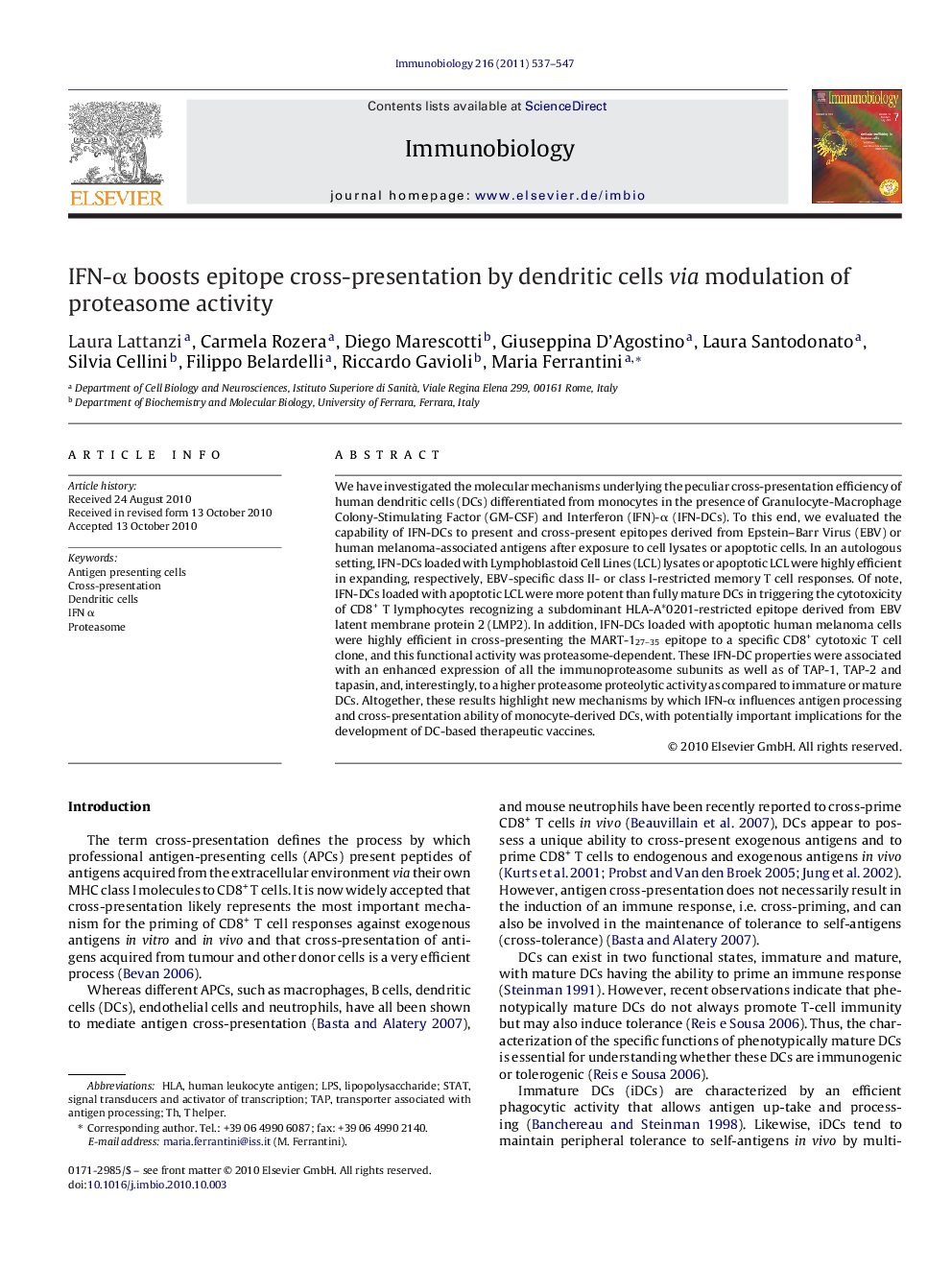| Article ID | Journal | Published Year | Pages | File Type |
|---|---|---|---|---|
| 2183704 | Immunobiology | 2011 | 11 Pages |
We have investigated the molecular mechanisms underlying the peculiar cross-presentation efficiency of human dendritic cells (DCs) differentiated from monocytes in the presence of Granulocyte-Macrophage Colony-Stimulating Factor (GM-CSF) and Interferon (IFN)-α (IFN-DCs). To this end, we evaluated the capability of IFN-DCs to present and cross-present epitopes derived from Epstein–Barr Virus (EBV) or human melanoma-associated antigens after exposure to cell lysates or apoptotic cells. In an autologous setting, IFN-DCs loaded with Lymphoblastoid Cell Lines (LCL) lysates or apoptotic LCL were highly efficient in expanding, respectively, EBV-specific class II- or class I-restricted memory T cell responses. Of note, IFN-DCs loaded with apoptotic LCL were more potent than fully mature DCs in triggering the cytotoxicity of CD8+ T lymphocytes recognizing a subdominant HLA-A*0201-restricted epitope derived from EBV latent membrane protein 2 (LMP2). In addition, IFN-DCs loaded with apoptotic human melanoma cells were highly efficient in cross-presenting the MART-127–35 epitope to a specific CD8+ cytotoxic T cell clone, and this functional activity was proteasome-dependent. These IFN-DC properties were associated with an enhanced expression of all the immunoproteasome subunits as well as of TAP-1, TAP-2 and tapasin, and, interestingly, to a higher proteasome proteolytic activity as compared to immature or mature DCs. Altogether, these results highlight new mechanisms by which IFN-α influences antigen processing and cross-presentation ability of monocyte-derived DCs, with potentially important implications for the development of DC-based therapeutic vaccines.
